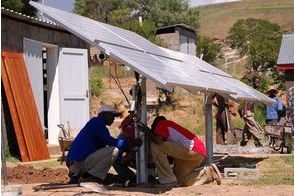New countries and regions are putting a price on carbon as pricing initiatives near $50 billion

Summary
The global value of carbon pricing instruments today is estimated at just under $50 billion, according to Carbon Pricing Watch 2015.
The global value of carbon pricing instruments today is estimated at just under $50 billion, according to Carbon Pricing Watch 2015, a new publication from the World Bank Group and Ecofys.
Emissions trading systems have grown in value from US$32 billion in 2014 to US$34 billion as at May 26th. That rise is due in part to the addition of the South Korea emissions trading scheme and the expansion of the California and Quebec cap-and-trade programmes.
In the same vein, existing carbon tax systems have risen to $14 billion. “Carbon pricing is clearly gaining traction. In the last year, we’ve seen Chile and Mexico join the ranks of countries, cities and states putting a price on carbon. So it’s no longer a matter of if or when to price carbon,” said Rachel Kyte, World Bank Group Vice President and Special Envoy for Climate Change. “With the focus now on action in the run-up to the Paris climate summit in December, business and governments have walked across the battle lines and are now working together on how and how fast to get prices right. There is a growing sense of inevitability to put a price on carbon,” Kyte said.
Related
-
EU reaches agreement on €750 billion COVID-19 recovery plan
The entire spending plan is expected to contribute to EU emissions-cutting goals.
-
First-ever carbon credit transaction recorded in West Africa
"Similar CO2 offset transactions are under negotiation with African hotel chains, carriers and agribusinesses," said ...
-
First two projects for Africa Climate Fund get approval
The AfDB-managed ACCF was established in April 2014 with a EUR 4.725 million contribution from Germany with the objective ...









